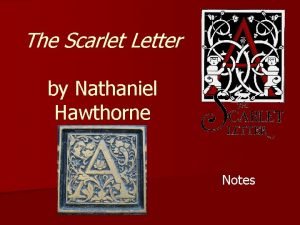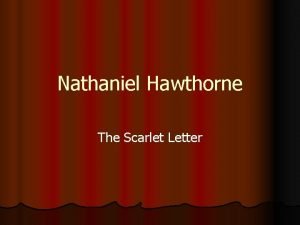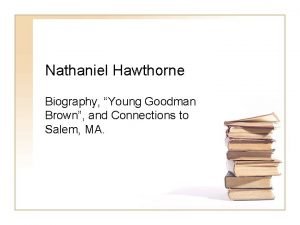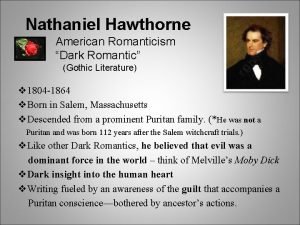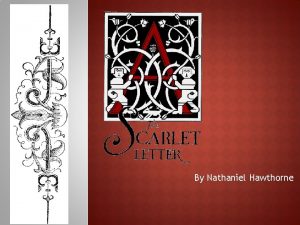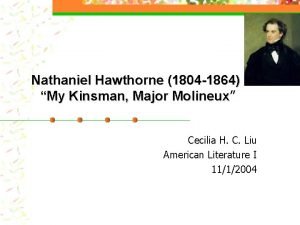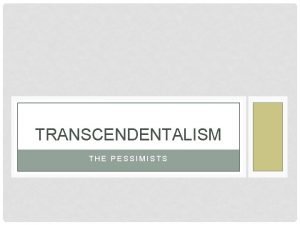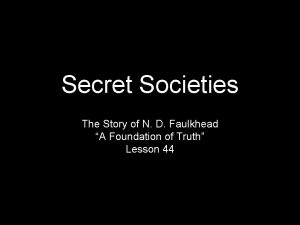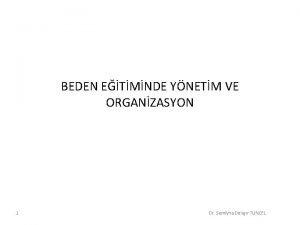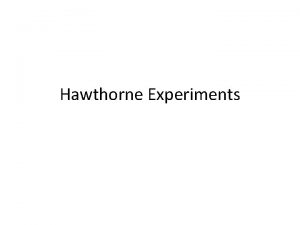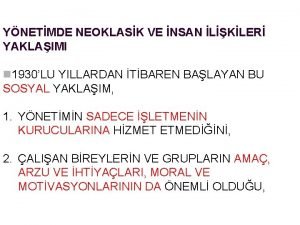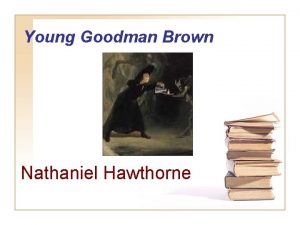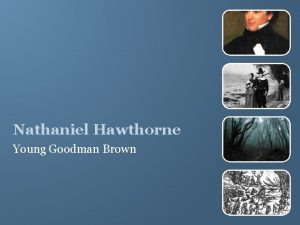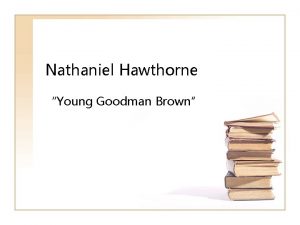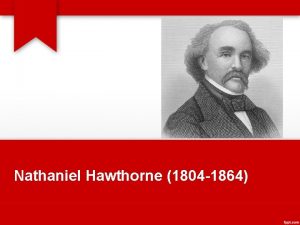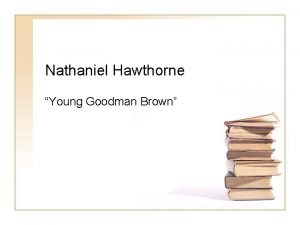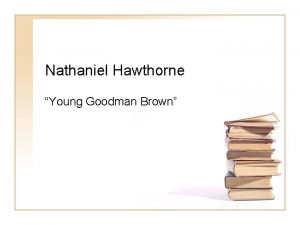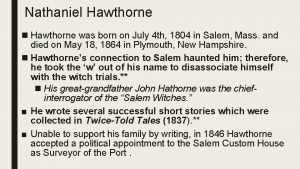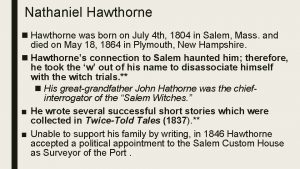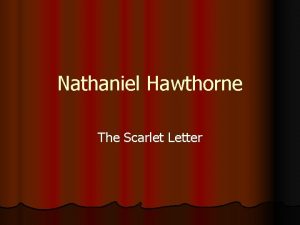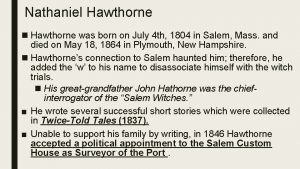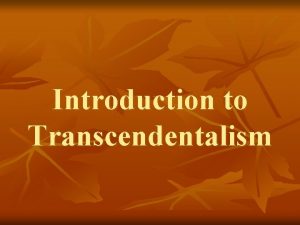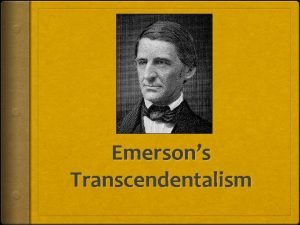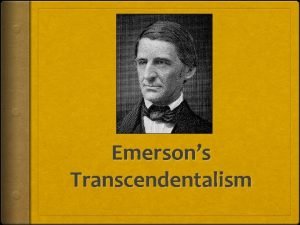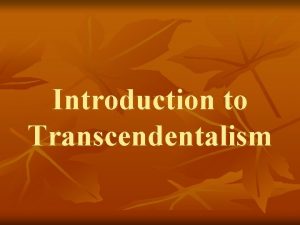TRANSCENDENTALISM THE PESSIMISTS THE PESSIMISTS Nathaniel Hawthorne Edgar


























- Slides: 26

TRANSCENDENTALISM THE PESSIMISTS

THE PESSIMISTS • Nathaniel Hawthorne • Edgar Allan Poe • Herman Melville

EDGAR ALLAN POE 1809 - 1849 • Much of his biographical information is distorted. Hard to separate legend from fact. • Multiple Poes • Tragic American writer romantically doomed to failure by internal and external forces too strong for him to control. • Literary “lightweight” whose works reveal technical skill but yield no significant content. • Obsessed writer whose works mirror his own mental torment and psychological disintegration

BACKGROUND • Actor-father deserted the family when Poe was 1 • Actress-mother died from tuberculosis when Poe 2 • Informally adopted by the Allans, a wealthy, childless couple • Academically promising, but had to leave the University of VA because of gambling debts • Served in army for two years • Struggled against the rules for 8 months. Deliberate defiance brought his dismissal • Published poetry volumes in 1857, 189, 1831

BACKGROUND CONT’D • Turned to fiction. Won first prize in a Baltimore newspaper competition for short story • Over the next 12 years, his carefully crafted short stories raised the genre to artistic status. • Also worked as an editor, but always ended up fired because of quarrels with the owners. • Wrote scathing reviews of writers he disliked • Belittled works for personal reasons • Accused Longfellow of plagiarism

PERSONAL LIFE • • • 1835 married 13 year-old cousin Virginia Clemm 1836 – 1844 successful literary career Bouts of drinking and depression 1847 Virginia died Threw himself into his work 1849 on his way from Virginia to Philadelphia he stopped off in Boston. • Found lying in a gutter in a coma. • Remained delirious for 4 days until he died

POE’S WORKS • First American writer to influence his successors in poetry, fiction, and criticism • Believed the human mind was divided into three faculties • Intellect – truth appeals to • Soul – beauty appeals to • Conscience – duty appeals to • Believed the compartments were separate so neither truth nor morality appeals to the soul

STYLE • Proper length governed his literary style • Poetry and fiction should be short enough to read in one sitting • Poem limit 100 lines • Insisted a work must meet high literary standards • Believed a single emotion or mood should dominate a literary work • Generally sought melancholy mood in poetry • Horror or terror in fiction

STYLE AND CHARACTERISTICS • Romantic in principle and practice, but distinctly denied being a transcendentalist • Characters didn’t project the optimism and upward progress to perfection • Characters were caught in a downward process of psychological and moral disintegration • Works do not reveal helpful truths to man, but instead a nightmarish landscape of failure, malevolence, and death • Persistently pessimistic about mans achievements and capabilities

“TO HELEN” • Helen of Troy, classical epitome of beauty • Actually writing to Jane Stanard, mother of a childhood friend • Stresses the importance of the world of the imagination – the ideal, rather than the real • Ideal beauty guides the poet to his home in the world of imagination, his “Holy-Land”

THE RAVEN • Most famous of Poe’s poem • About the narrator’s dead love, Lenore • The Raven transforms from a strange, funny bird to the symbol of pure evil • Other symbols • Night - mystery • Plutonian – God of the Underworld (more creepy mystery) • Setting: midnight in December, symbolic of death • Raven: an ill omen • Symbolizes mournful never-ending remembrance • Lenore will return “nevermore” • By end of the poem, the narrator has lost his mind • Theme: the death of a beautiful woman

THE PURLOINED LETTER • Intended simply to entertain • Atypical of Poe: no horror and terror • Dupin, the main character, is also the protagonist in two other Poe mysteries • Father of detective genre. Laid the groundwork for modern detective fiction • Sensational: relies of the dramatic action and high suspense • Analytical: relies heavily on careful deduction and foreshadowing • Story is a game of wits between the hero Dupin and the Minister • Shows greatest weapon in the fight against crime is not a superior arsenal but a superior wit

“NIL SAPIENTIAE ODIOSIUS ACUMINE NIMIO. ” - SENECA • Seneca – influential philosopher believed goal of life was to cultivate some self-control and objectivity. • “Nothing is more hateful to the sense than too much cunning. ” • Don’t be too smart for your own good. • D– Thinks he’s so clever that he overlooks the stupidity of blackmailing a royal lady • Dupin: shows off his cleverness by leaving his revenge note

SUMMARY • Minister stole queen’s letter and is using it to blackmail her • Police know he took it, but can’t find it • Confer with Dupin since he has successfully helped them before • Dupin knows D– very well and finds the letter • Police only think to look where they would have hidden it • Dupin is able to think like D-- • Swaps it for a fake letter with a snide note letting D– know that he has been outsmarted • “Such a mean plan is unworthy of Atreus, but totally worthy of Thyestes. ”

“SUCH A MEAN PLAN IS UNWORTHY OF ATREUS, BUT TOTALLY WORTHY OF THYESTES. ” • “Revenge tragedy" called Atrée et Thyeste, written (in French) in 1707 by a playwright called Prosper Jolyot • There’s bad blood between Atreus and his brother Thyestes sparks the feud by sleeping with his brother's wife, stealing his golden fleece, and sneakily taking the throne of Mycenae from him. After taking back the crown, Atreus gets revenge on his brother by killing Thyestes' sons and tricking his brother into eating the boys for dinner. This horrific crime causes a wave of terribleness that in the end leaves both brothers dead and places a violent curse on the House of Atreus. - Schmoop summary

“Such a mean plan is unworthy of Atreus, but totally worthy of Thyestes. ” • Sibling-type rivalry • • Names have same first initial Obviously know each other well Think alike Long-standing, intimate relationship • Dupin wants revenge on D– for something evil he did to Dupin in the past • The mastermind criminal and the mastermind detective are two versions of the same mind.

REVIEW • Does the queen get her letter back? • Is that the point of the story anyway? • How does Monsieur G display faulty logic in his attempt to solve the crime? • How does the tone of the story reflect on Poe’s purpose to entertain? • What advantage does Poe gain by having Dupin’s friend be the narrator?

NATHANIEL HAWTHORNE 1804 - 1864

A ROMANTIC • • • The Exotic The Remote The imaginative The anti-aristocratic Superiority of the spiritual over the material • But… • Saw wickedness and darkness within the human heart • Believed man was innately sinful • Rejected the Puritan faith, but vision of the human condition was more in keeping with his Puritan ancestors than his transcendental contemporaries.

LITERARY CAREER • Developed in 3 stages • 12 year literary preparation: isolated himself to read widely and practice writing • Ended with 18 tales published in Twice-Told Tales • Short story phase • Themes of isolation, guilt, and pride • Novel phase • • The Scarlet Letter The House of Seven Gables The Blithedale Romance The Marble Faun

STYLE • Allegory: literal and implied meaning • Ambiguity: double or inconclusive meaning • Ambivalence: coexistence of conflicting feelings or attitudes of an author or a reader • Love-hate relationship between Hawthorne and his Puritan past • Common themes • • • Nature of good and evil Effects of hidden sin Consequences of isolation Nature of initiation into the knowledge of evil Balance of the head and heart

USE OF CLASSICAL HUMANISM • Used to evaluate his characters • Founded on 3 primary maxims • Self-knowledge (“Know thyself”) • Temperance or moderation • Humility • Hawthorne added a third • Principal of Christian charity • All men are fellow sinners and sufferers, so they should regard one another with sympathy rather than with judgment

THE MINISTER’S BLACK VEIL • Subtitle: A Parable • Indicated Hawthorne wished readers to see a symbolic meaning in the story • Not just about the minister, but about us all • Themes 1. Universal guilt 2. An isolating action may cause a person to break the bonds that unite him with the rest of humanity. • Elements of Romanticism • Focus on the self • Fascination with death and supernatural

SYMBOLISM • Veil • Secret sin • Universal guilt • Funeral and wedding • Death and life • Evil that resides in the human heart invades even the most sacred events

SECRET SIN • Does the minister seem to understand the basis of Christianity? • Irony - Minister, who is likely one of the holiest in the town, is the one who feels like he needs to outwardly display his secret sin. - Minister, messenger of God, has such little understanding of Christianity

PARALLELS TO THE SCARLET LETTER • Theme of sin • Wearing of your sin • Shunned • Guilt-ridden ministers • Puritan time period
 Scarlet letter meaning
Scarlet letter meaning The birthmark setting
The birthmark setting Nathaniel hawthorne literary period
Nathaniel hawthorne literary period The scarlet letter historical context
The scarlet letter historical context Nathaniel hawthorne puritan background
Nathaniel hawthorne puritan background Nathaniel hawthorne background
Nathaniel hawthorne background What is dark romanticism in literature
What is dark romanticism in literature Allegory in young goodman brown
Allegory in young goodman brown Nathaniel background
Nathaniel background Nathaniel hawthorne
Nathaniel hawthorne Nathaniel hawthorne presentation
Nathaniel hawthorne presentation Ms 74 website
Ms 74 website Nathaniel hawthorne my kinsman major molineux
Nathaniel hawthorne my kinsman major molineux Where was the setting of the story david swan
Where was the setting of the story david swan Edgar allan poe transcendentalism
Edgar allan poe transcendentalism Amos black trigger
Amos black trigger Nathaniel langer md
Nathaniel langer md Nathaniel rothschild
Nathaniel rothschild Nathaniel faulkhead
Nathaniel faulkhead Dr assouly reims
Dr assouly reims Nate mantua
Nate mantua Dr nathaniel marchetti
Dr nathaniel marchetti Edmond berger black history
Edmond berger black history When did marco polo start exploring
When did marco polo start exploring Hawthorne araştırmaları
Hawthorne araştırmaları Relay assembly test
Relay assembly test Hawthorne araştırmaları
Hawthorne araştırmaları
